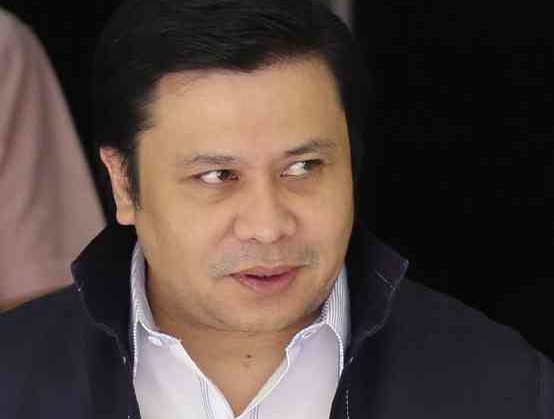The Sandiganbayan Fifth Division has denied the appeal of former Senator Jose “Jinggoy” Estrada against the court’s denial of his move to dismiss the “redundant” graft charges against him over the pork barrel scam.
In a resolution promulgated Oct. 4, the anti-graft court said it has denied Estrada’s motion for reconsiderationfor lack of merit.
The court castigated Estrada for citing court cases which failed miserably to help him in his argument to dismiss his 11 counts of graft charges allegedly because these should not be considered as separate crimes from his plunder case.
READ: Jinggoy seeks dismissal of graft cases over pork barrel scam
While it was “unfortunate” that none of the court cases helped Estrada, the court said it was a “disservice to the efficient administration of justice that so much time had to be spent to verify the assertions espoused by the accused vis-a-vis those cases, all for naught.”
Estrada filed a motion for reconsideration of the court’s decision to deny Estrada’s motion to dismiss the graft cases allegedly because these were deemed “absorbed” in the plunder charge already.
READ: Sandigan junks Jinggoy’s bid to dismiss graft raps
The son of former President Joseph Estrada is accused of dealing with accused mastermind Janet Lim-Napoles to earn kickbacks from his Priority Development Assistance Funds (PDAF).
In his motion for reconsideration, Estrada cited among others, the Supreme Court decision in the rebellion case against National Artist for Literature Amado V. Hernandez, which established the dictum that there is no complex crime of rebellion with murder.
While the said Hernandez decision did say that the additional charges of arson, murder and robbery are “mere ingredients” of the crime of rebellion, a term Estrada used to describe his graft charges, the Sandiganbayan said the decision did not describe the charges as “absorbed” in the crime of rebellion.
“Without a doubt, the Supreme Court did not say ‘absorbed,’ as the accused would insist—obviously a self-serving, ad-lipped interpretation of the phrase ‘mere ingredients,'” the court said.
Estrada also cited the Atty. Serapio vs Sandiganbayan case in 2003 which he claimed held that plunder could not be deemed a separate crime from the predicate acts of illegal gambling and bribery.
The court hit Estrada’s camp for its “incomplete reading, selective presentation and twisted interpretation” of the case, which actually held that the separate indictments contained in the plunder charge are incidental, not absorbed.
The court maintained its earlier position that it could not dismiss the charges against Estrada because the accused is barred from seeking a quashal of the information against him due to this arraignment.
In his bid to dismiss the graft charges, Estrada said the disbursement vouchers subject of the graft cases were “offshoots” of the releases of PDAF allocations covered by the special allotment release orders which were the subject of the plunder case.
In dismissing the motion, the court said the 11 counts of graft could not be absorbed into the plunder charge because the plunder charge covers the period 2004 to 2012 while the graft cases cover the period 2008 to 2010.
The court said following these facts of the case, it does not make sense to lump together the graft cases and the plunder information on the claim that the plunder is composed of individual graft indictments.
Besides being accused of plunder for receiving P183 million in kickbacks, Estrada is accused of violating Section 3(e) of the anti-graft law for causing injury to government and giving undue preference to Napoles’ bogus organizations Masaganang Ani Para sa Magsasaka Foundation and Social Development Program for Farmers Foundation.
Estrada allegedly endorsed the bogus foundations to implement his pork barrel projects which turned out to be non-existent.
He was denied bail and remains under police custody with co-accused former Senator Ramon “Bong” Revilla Jr. at the Philippine National Police Custodial Center. Another accused, the elderly Sen. Juan Ponce Enrile, was allowed by the Supreme Court to post bail for humanitarian considerations. RAM/rga
